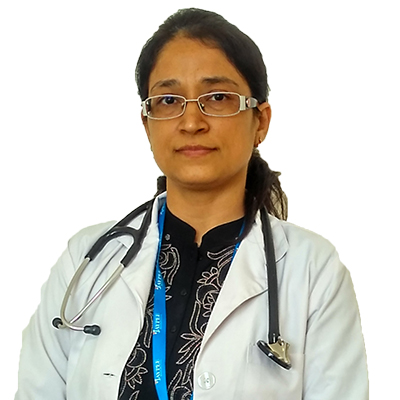Thyroid is a butterfly-shaped gland located in the front of our neck and is a part of the endocrine gland system. Hormones are produced and storied in the thyroid gland and it affects the function of the various organs in the body. Thyroid hormone is majorly responsible for regulating the metabolic rate in the body.
Thyroid-related disorders:
Thyroid disorders are on a rise in India with around 42 million people suffering from different types of thyroid-related issues such as hypothyroidism, hyperthyroidism, Hashimoto’s Thyroiditis and thyroid cancer. One in 10 adults in India suffers from hypothyroidism, which is three times more common in women. One in every three diabetic patients could have underlying thyroid disorder and 44.3% of pregnant women are found to have hypothyroid in the first trimester.

SYMPTOMS OF THYROID
One third of thyroid patients are unaware of their condition. The reason is that the symptoms of thyroid-related illness vary depending upon severity. Below are some of the early symptoms of various types of thyroid disorders.
- Hypothyroidism is a disorder of the endocrine system, in which the thyroid gland is incapable of producing enough thyroid hormone for the body to function properly.
- If you are hypothyroid:
- Then you will often feel tired and exhausted. Lethargy is the most common symptom of this disorder.
- you may have weight gain
- You may experience constipation other gastro- intestinal issues.
- You will also feel excessively cold all the time. Hands and feet also get swollen.
- muscle pains and cramps
- Some women may face excessive, prolonged and irregular period bleeding. In some cases it becomes difficult to conceive as well.
- Hyperthyroidism is seen in patient, when the thyroid gland releases abnormally high level of thyroid hormone. It can produce a rapid heart rate and Grave’s Disease is the most common cause of hyperthyroidism.
- If you are hyperthyroid:
- Considerable weight loss is the most evident symptom despite adequate appetite
- Nervousness
- Palpitations coupled with hand and entire body tremors. Some elderly people may also suffer from heart attack.
- Disturbed sleep and even insomnia
- Frequent bowel movements
- Bulging of eyeballs
- Thyroid goitre is the swelling in the neck due to abnormally enlarged thyroid gland. It is one of the most common thyroid disorders are often harmless.
- If you have thyroid goitre (lump in the neck):
- you may observe difficulty in swallowing
- Even breathing may be little difficult
- Hoarseness of voice
DIET
One should have adequate amount of iodine in their diet. There is no scientific evidence that food items such as cabbage, broccoli, cauliflower, spinach and soya products interfere with thyroid function if iodine intake is sufficient. But it’s better to wait for at least four hours after taking thyroid medicine before you consume such products and other iron and calcium supplements. A hyperthyroid patient should incorporate ample amount of fibre in their meal to lose weight. Foods that are rich in fibre include vegetables, fruits, nuts and whole grains.
ADVICE FROM THE EXPERT
Consult a doctor: It is extremely important to consult a concerned doctor if you are suffering from thyroid disorder. Thyroid disorders cannot be cured, but it certainly can be completely controlled. The diagnosis is made by complete thyroid blood test profiling. In case of hypothyroidism the treatment is usually lifelong and involves synthetic thyroid hormone in form of tablets. Hyperthyroidism is treated with anti-thyroid tablets and treatment generally lasts for a year.
Regularly check your thyroid: A physician may sometime completely depend upon the blood test for diagnosis and may miss out on thyroid disorder. This leaves many people undiagnosed. Therefore, it is important to check thyroid levels on daily basis.
Stay hydrated: Drinking plenty of water ensures in regulating the body temperature, keeping skin hydrated, eliminating fatigue and lethargy and loosening of stool. Hypothyroid patients are required to drink 8-10 glasses of water to speeds up the metabolism resulting in speedy weight loss.
Exercise Regularly: Exercise helps to restore insulin levels and improve metabolic function in the thyroid patient. Some moderate cardiovascular exercises, strength and weight training exercises are extremely beneficial. Exercise also helps to accelerate the treatment of most of the thyroid conditions and compliments the medications as well.
Avoid smoking or drinking alcohol: Thyroid patients should immediately stop drinking and smoking. Alcohol suppresses the thyroid gland functions as it is a depressant. Tobacco equally harmful as it blocks the hormones.
No self-medication: Self medication is associated with risk of misdiagnosis and using of incorrect dosage of drugs for a prolonged period of time can be fatal for the life of the person. Hence, one should always opt for prescribed medicines after the proper diagnosis and evaluation of thyroid.
